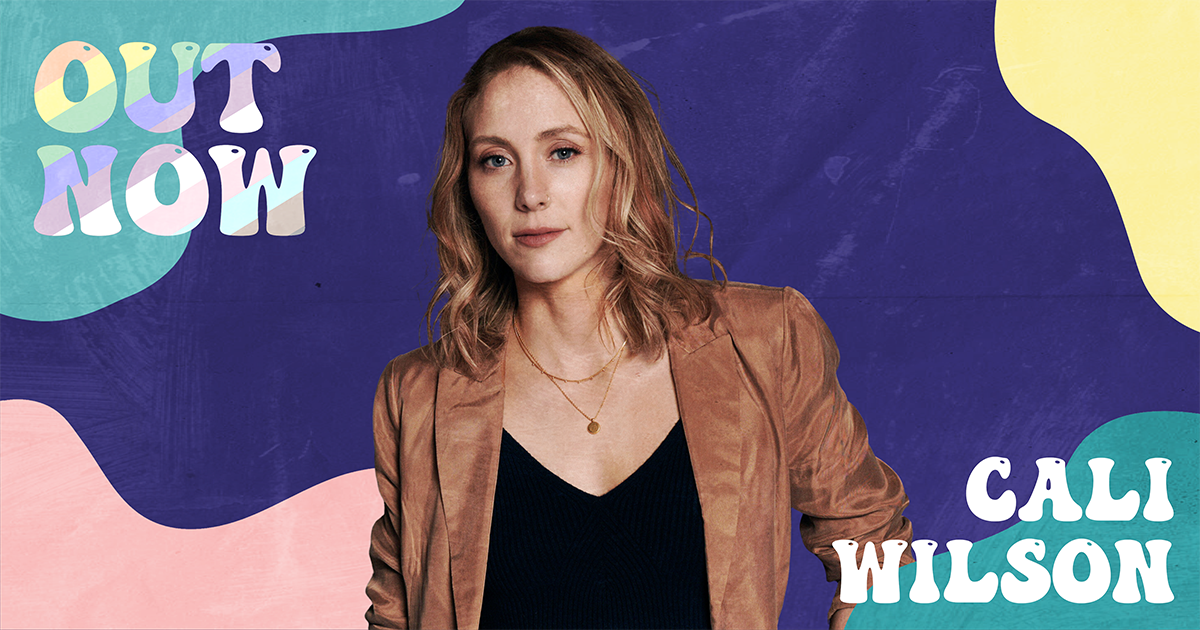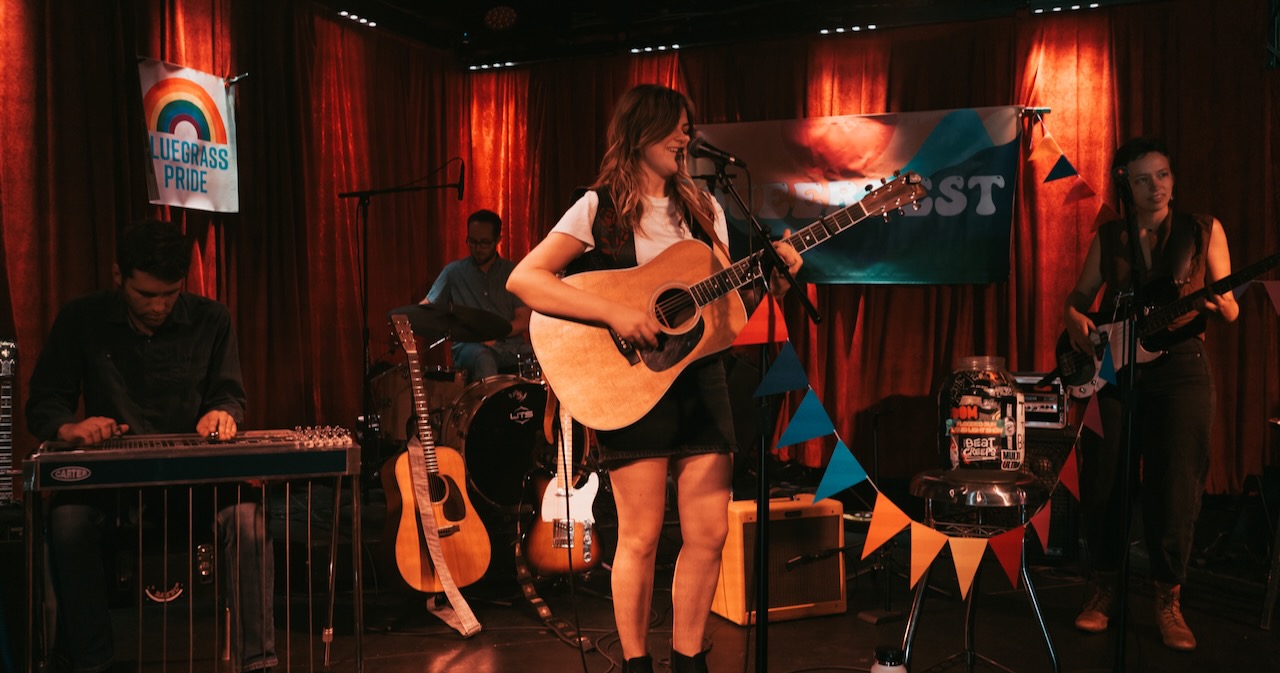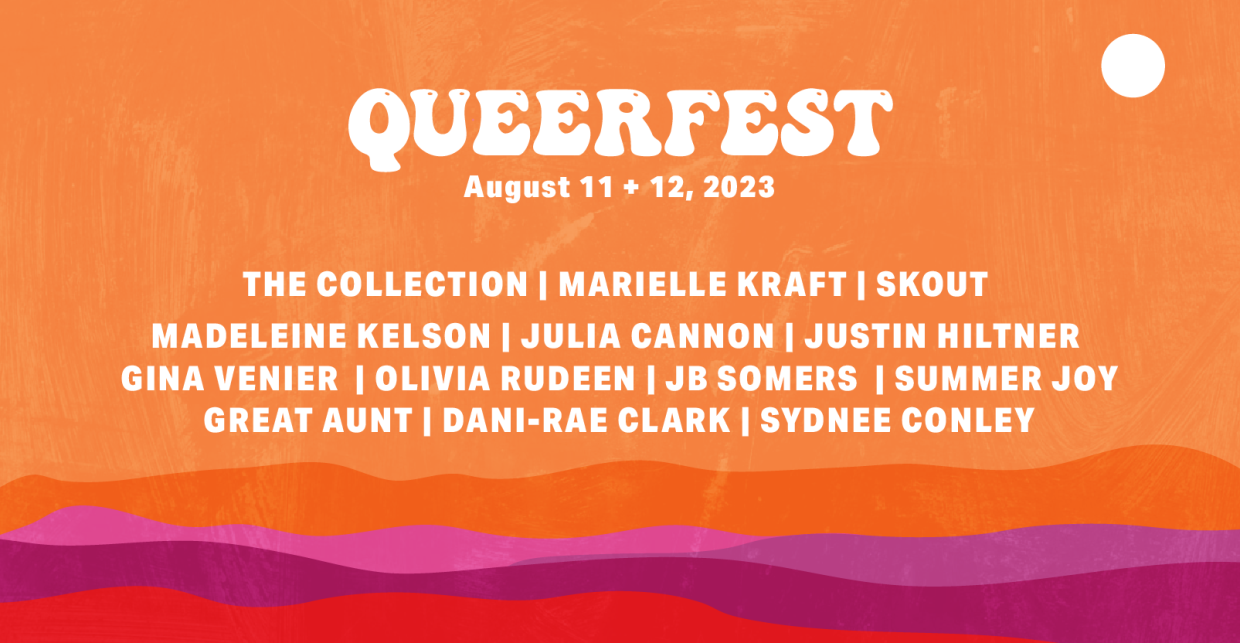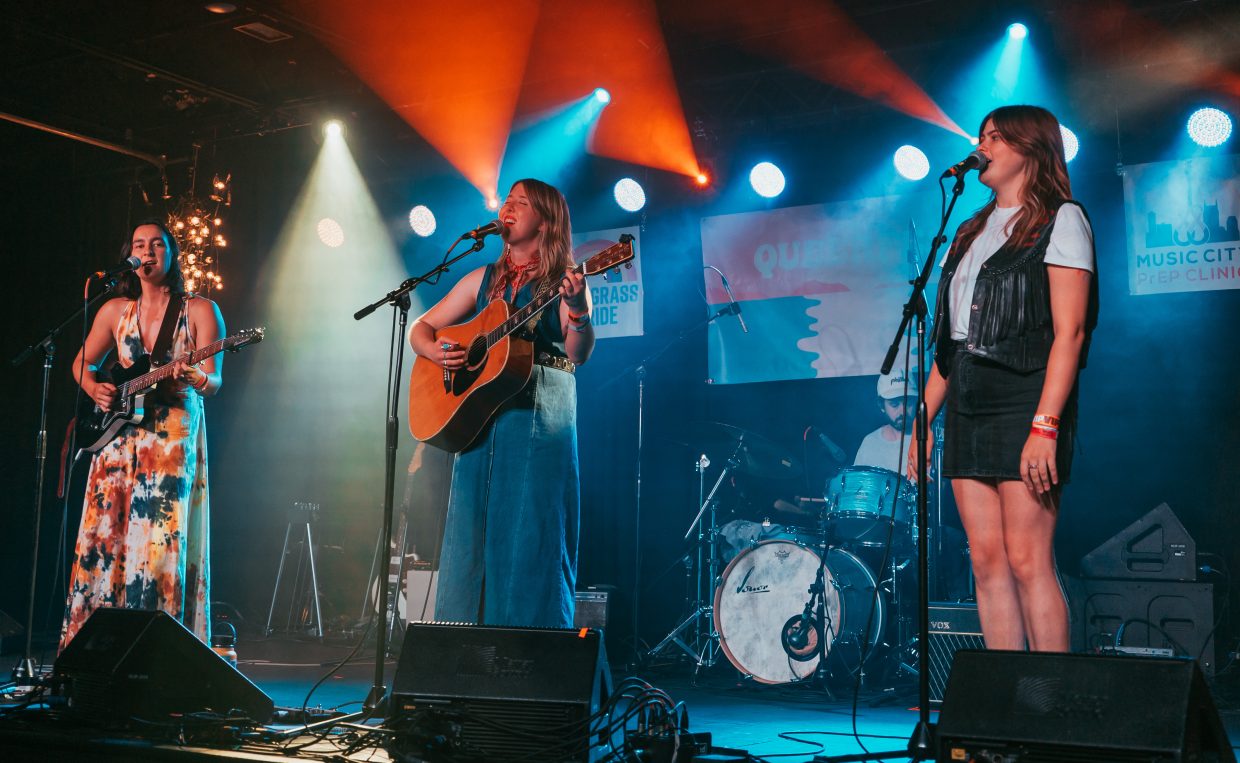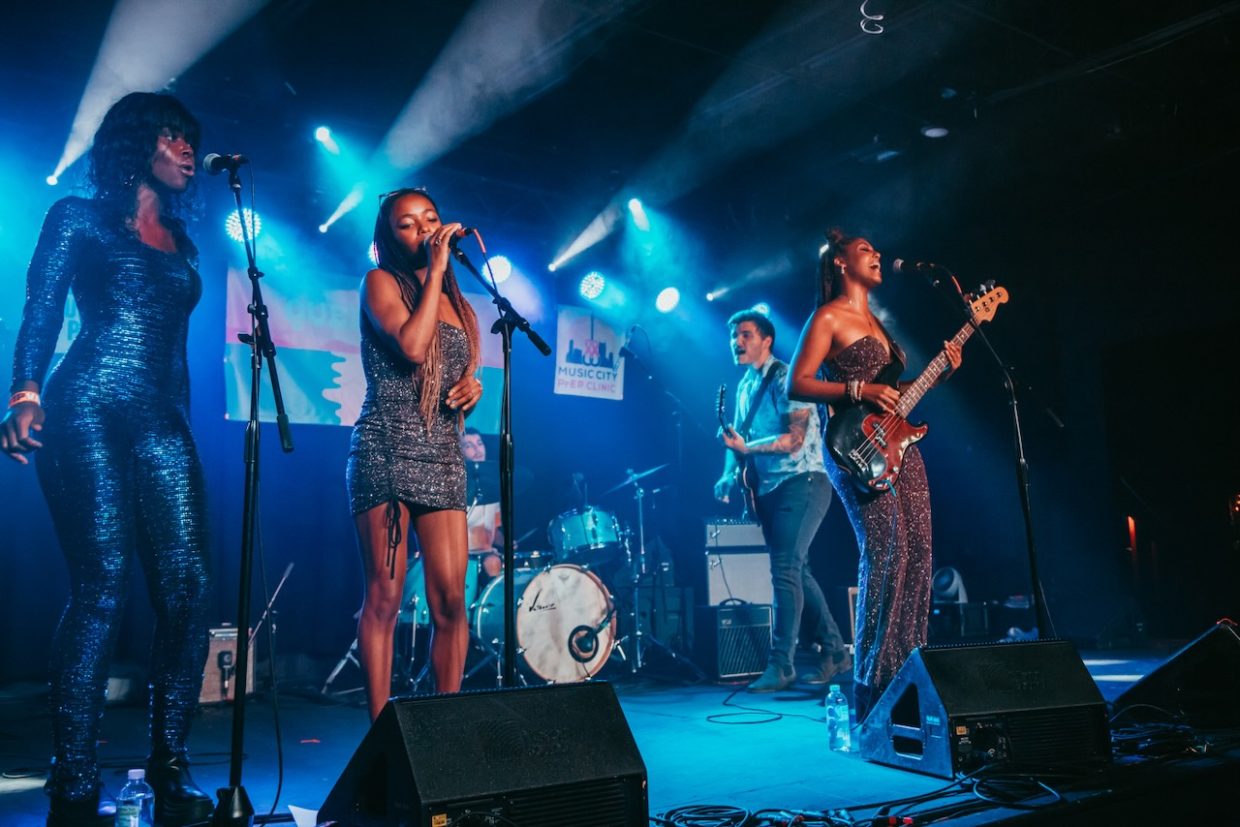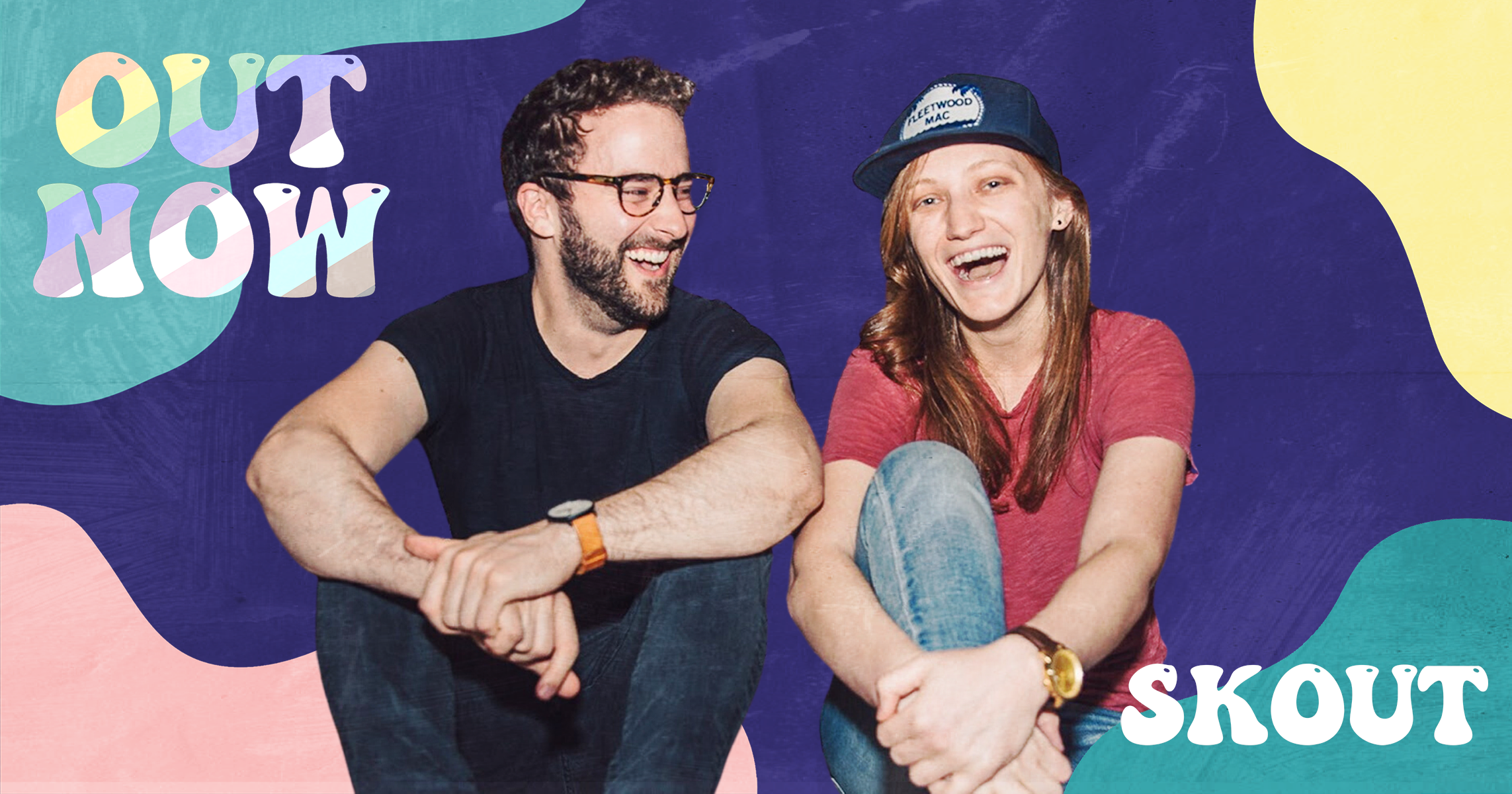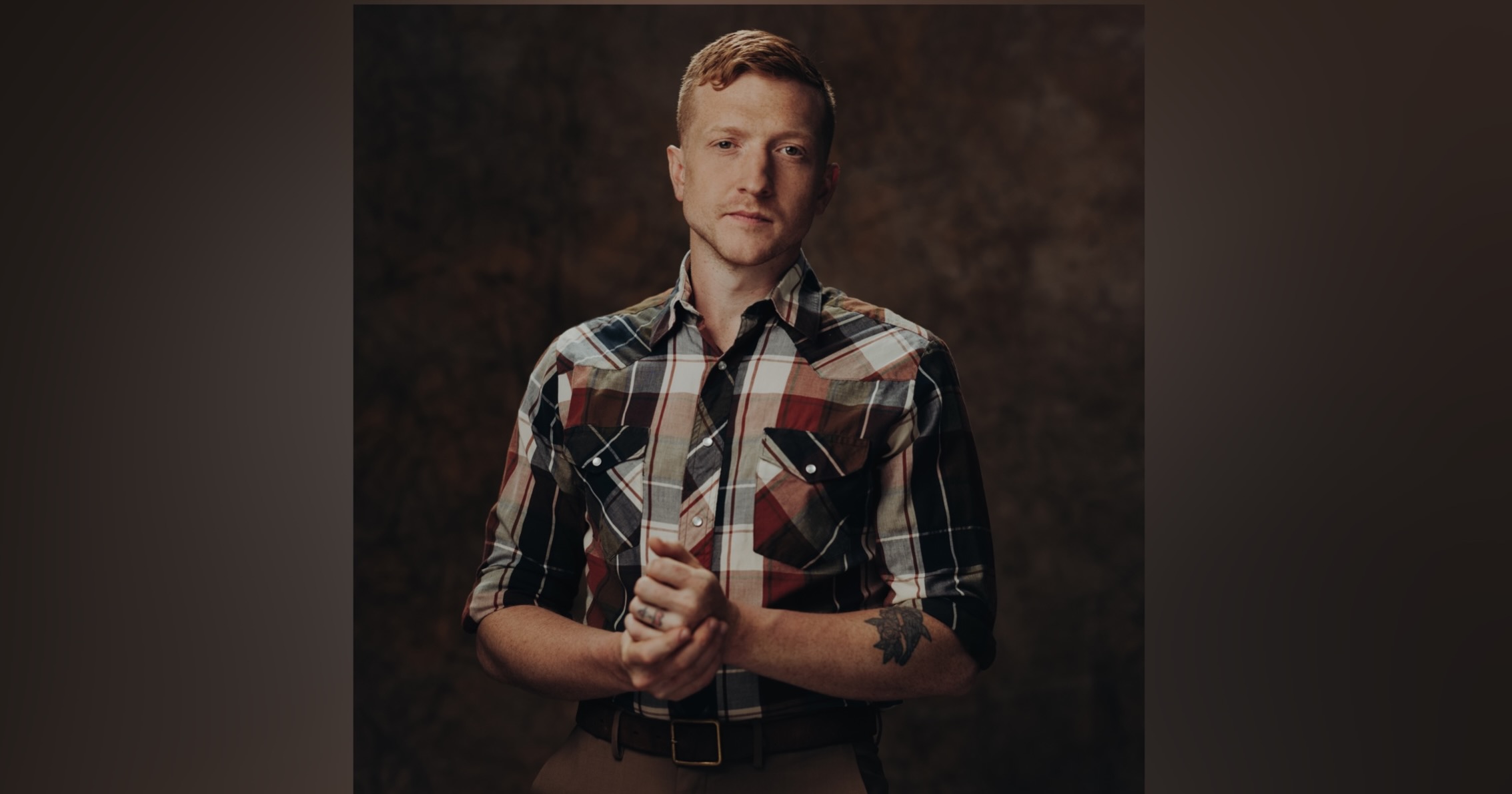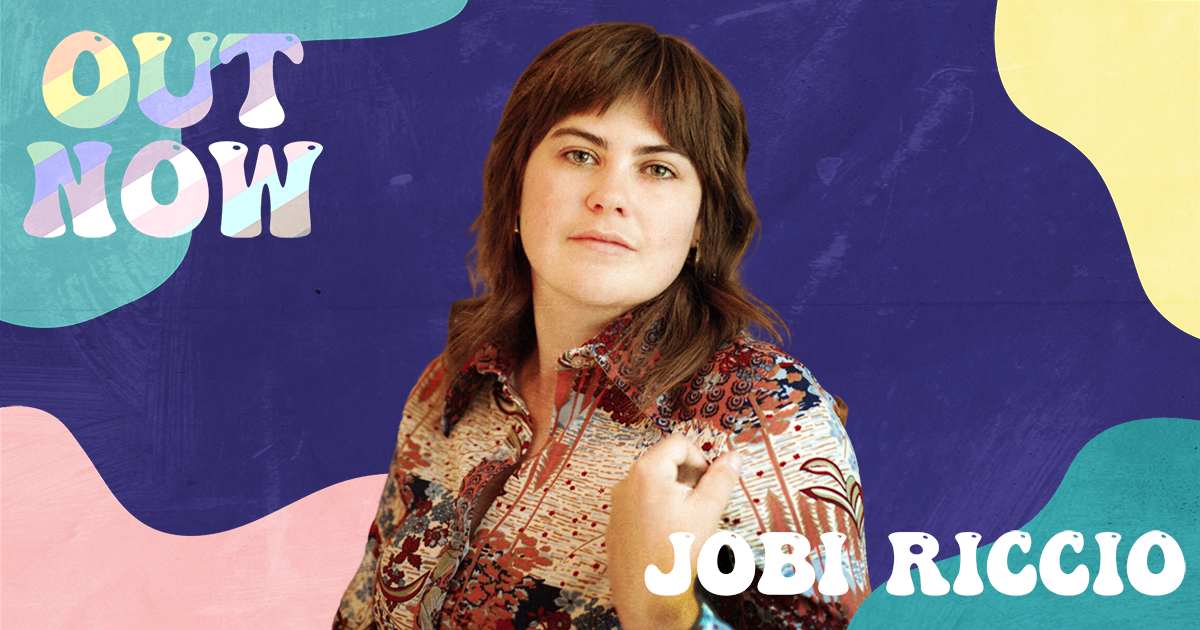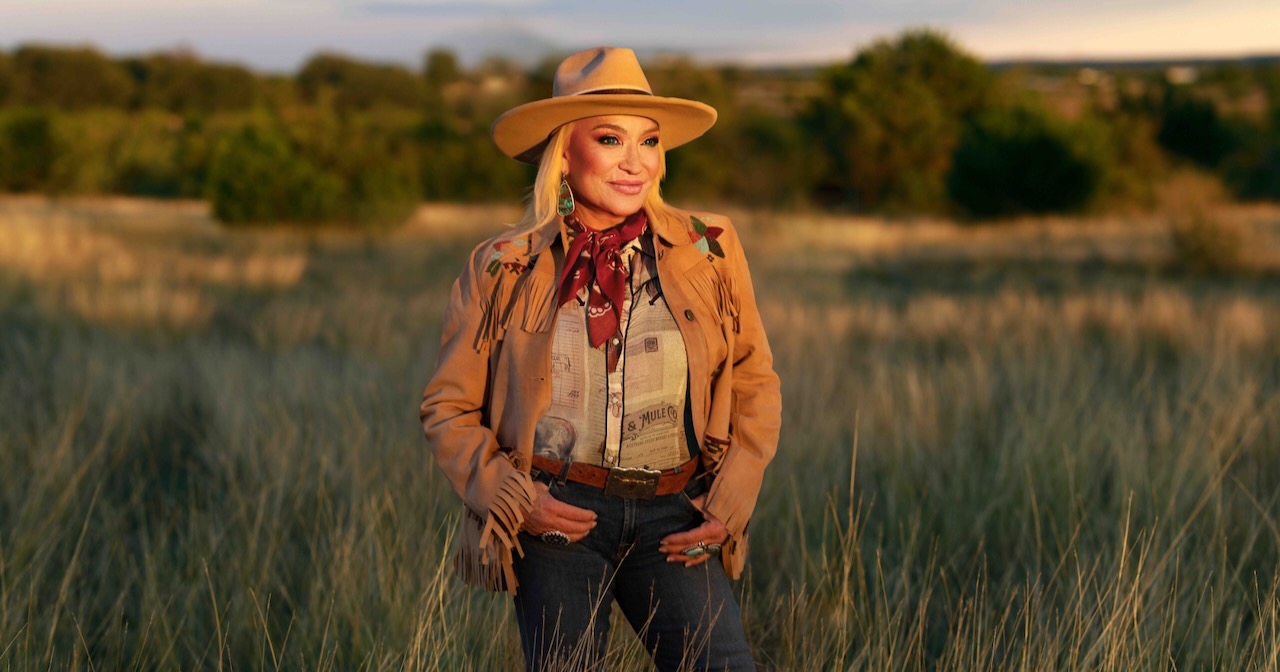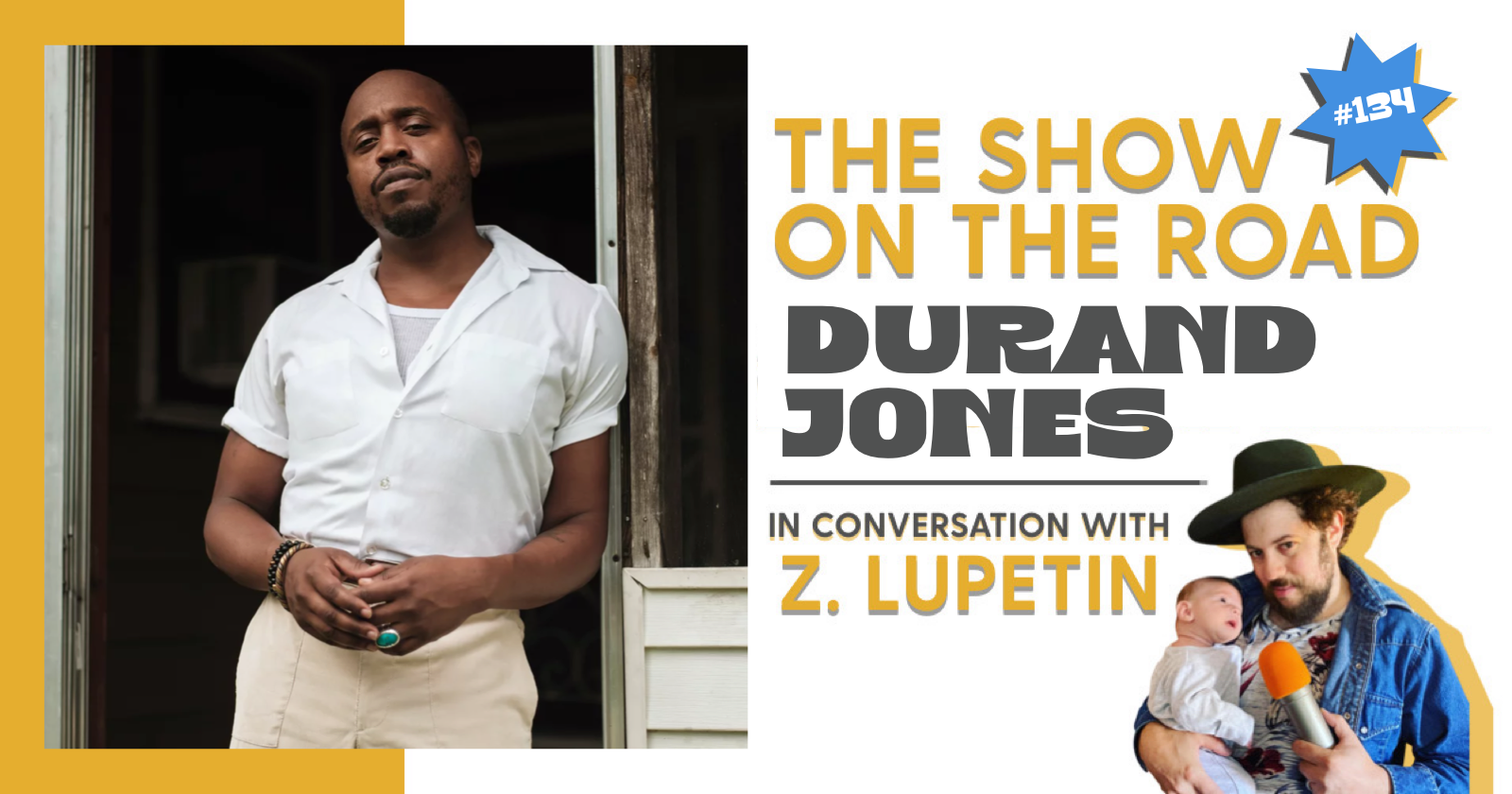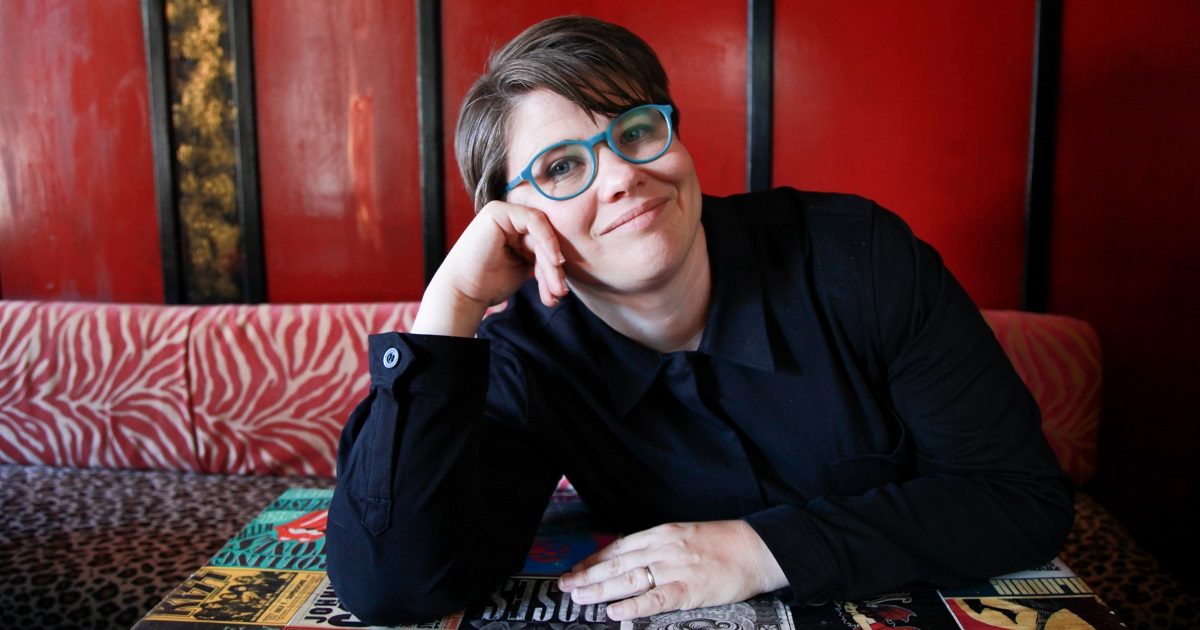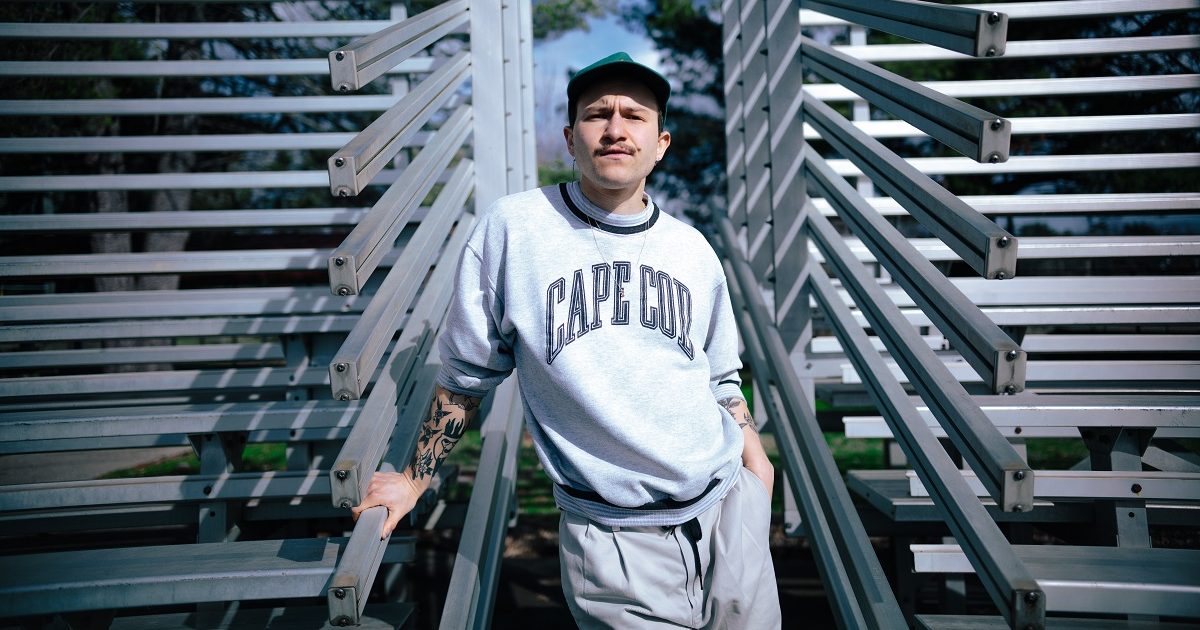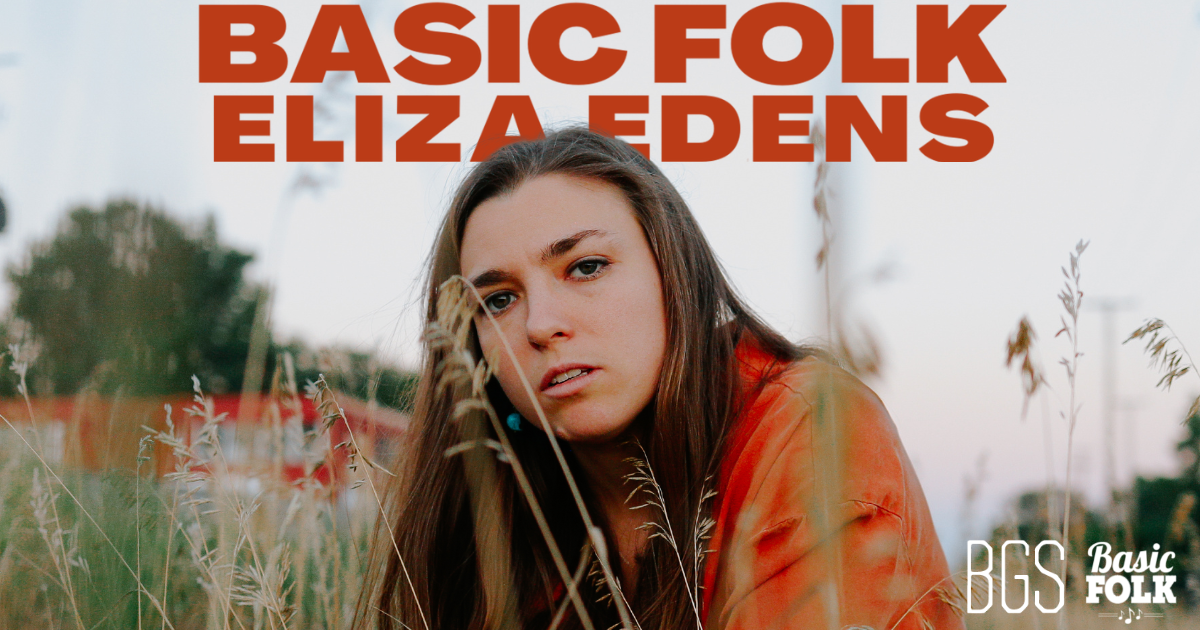Cali Wilson is the kind of artist who starts playing and the rest of the world melts away, leaving you with her phenomenal voice, warm guitar, and captivating lyrics. The first time I heard Cali play, she was doing her soundcheck for our monthly Queerfest showcase at Vinyl Tap in Nashville. Of course, I had listened to her music before, but I was stunned by how strongly her voice felt live, her vibrato resembling Brandi Carlile’s.
Following Cali’s appearance at Vinyl Tap, I was proud to book her for Queerfest 2022 and Nashville Scene‘s BEST FEST.
Cali’s latest release, “Old Fashioned,” was co-written with Chris Housman, another queer artist in Nashville known for his single “Blueneck.” It’s exciting to see LGBTQ+ artists collaborating and growing together.
Our Out Now conversation touches on the process of creating music, the challenges around promoting it, and finding a balance between social media and mental health.
Why do you create music? What’s more satisfying to you, the process or the outcome?
CW: I think creating music, for me, is one of my forms of communication. It’s a way I can look inward and reflect on my emotions. Often we are so caught in our own experience, it’s hard for us to be objective. Music has a way of letting me see more points of view. It helps me get outside of myself to find the story in the situations of life.
I think the process is always amazing and inspiring. It’s art that can keep evolving. To have a song or a record you can physically hear and feel is truly incredible, of course. But I’ll always love the act of writing and feeling it in the moment – a moment that you’ll never have again with that idea. Either by yourself or with co-writers, it’s the challenge of finding the best words to express that. I love that challenge. I love getting better at that process and soaking in how other writers flow, too. It’s the best thing about songwriting.
Do you create music primarily for yourself or for others?
I think that’s a really difficult question to answer. I find it’s mostly for me as I’m creating it, but then when I play it out, I hear how others connect with it. Then it becomes something else entirely. The best way I can describe it is, it feels like it’s for me, because it is at first. It’s what I feel. It’s my idea. But then it grows to be bigger than that feeling when people connect with it. That’s why music is so universal and beautiful. People can see something in a song that is totally different than what I wrote it for.
What’s the best advice you’ve ever gotten?
No one is going to promote you if you won’t promote yourself. And you can always be better. I don’t care if you’re the biggest hit writer, you can always learn something from someone in a room or on stage. Don’t get too big for your britches!
What are your release and touring plans for the next year?
I am planning some more single releases and maybe even an EP in the near future. Touring will be mostly around Nashville, but I’m heading to other states as well. Looking forward to creating more and broadening my fan base.
What would a “perfect day” look like for you?
I wake up, take my dog for a walk, and have my morning coffee or matcha. Then I head to co-writes on the row. Grabbing lunch, spending time with my wife and friends after a day like that is my slice of heaven.
Where did the idea for “Old Fashioned” come from? And how have you found the process of this release from writing to recording and promoting?
“Old Fashioned” was the first song Chris Housman and I wrote together. We had the title first and then wrote it as a love song. I’m super proud of it. The process was pretty simple. The production and how I wanted the record to sound was the hard part. Promotion is always going to be a challenge. You don’t want to overstimulate your audience, but you also want them to listen when it’s released. It’s tricky.
Independent artists like myself have nobody else to help with promo, social media, etc. It’s a lot of work, but it’s worth it.
Over the past year you’ve seen substantial growth on social media. What has that been like for you? Do you enjoy the process of creating content and promoting your work? Do you ever find it tiring or exhausting? How do you balance social media and mental health?
To be honest, I think social media was so much lighter on my soul when it wasn’t exactly “part of the job” in music. I have a hard time with it, but it’s getting better. I get overwhelmed and it’s hard for me not to compare myself to the peers that are doing better on socials. I get anxious cause I’m not posting enough and then I just get so anxious I don’t post at all. It’s such a hard balance and can really take a toll on you mentally. I try to balance it out with creating posts ahead of time when I can and just floating them up there on a schedule. That has helped a lot with the overthinking.
I’ve also found it’s okay to be silly and not take yourself too seriously. People want variety in your content regardless of what the “professionals” say. I always try to remember that as well.
Photo courtesy of Cali Wilson
